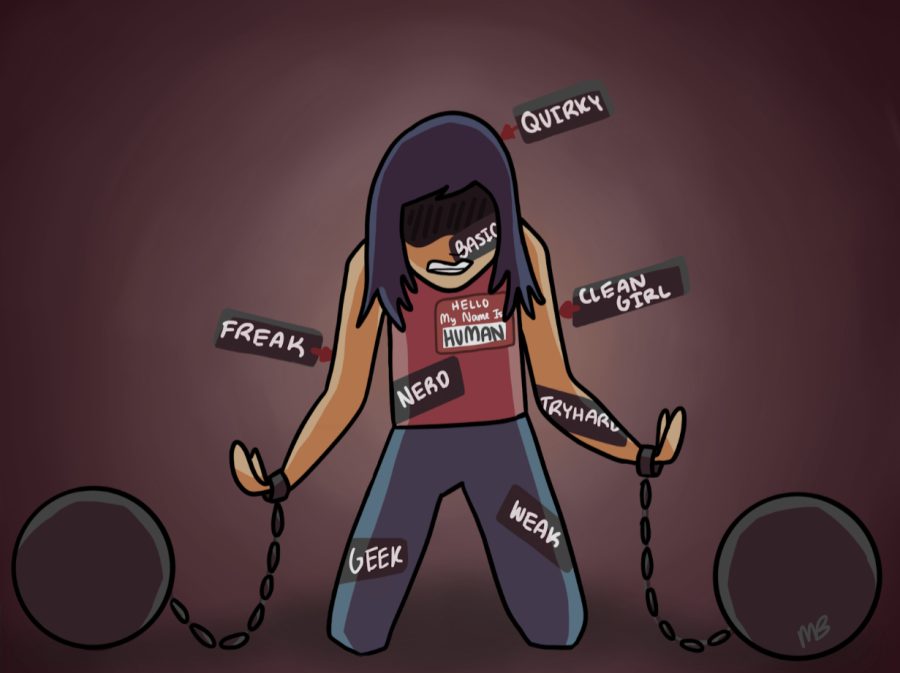Editorial: Don’t put us in a box
Labels ruin our ability to be comfortable with expressing ourselves
Teenagers put unnecessary labels on each other that only weigh everyone down. The Sidekick editorial board believes we should get rid of these labels and try to be a little kinder.
February 21, 2023
You’re such a weird kid.
Bro, you’re such a tryhard.
Girl, you’re so basic.
Labels. Some of them are positive, however a lot of them are negative.
As teenagers, we love to use them, both for ourselves and each other. Some might say it is our way of making sense of being in a confusing age and maintaining control, but a lot of labels can turn out to be very harmful.
The second you label someone, you are putting them in a box; You are telling them that this is what they have to be and they are not allowed to change or disagree. What is worse is that a lot of these labels tend to be dangerous, especially with the judgment attached to them.
When we label someone, it not only limits them in reality, but psychologically as well. We do not allow that person to grow and change and it hinders us from trying to get to know them for who they actually are, apart from the label we’ve coined for them in our heads. From that point on, they are frozen in these roles and we operate off of a judgment that can be completely inaccurate and not who that person actually is.
Some of the worst labels we experience and impose on others as teenagers are things like “basic,” but when we’re older, it can evolve into truly harmful stereotypes in the workplace.
The most common stereotypes in the workplace include women lacking confidence, women’s attire, ageism, fewer promotions for women, education shaming and just like high school: cliques. Those stereotypes and cliques that are formed are yet another example of how those labels do not stop at high school or college, they carry into the future in a professional work setting.
We need to remember that a person might like to be something or engage in certain activities, such as band or theater, without it making up their entire personality. They also might fit into that stereotype because they choose to, we don’t need to judge them for it.
High school is a time when teenagers tend to worry the most over how they are being perceived by others. There is a constant concern over how they look to others, how they are labeled and whether it’s positive or negative. They worry so much about their appearance to others that they can spend their time trying hard not to fit into a certain stereotype which leads to them not being their authentic selves.
Labeling can create unrealistic expectations for a person. They are constantly trying to live up to this version of themselves that sometimes may not actually exist.
It contributes to one of the biggest problems we face as teens: not feeling like we are being truly understood or seen for who we really are. We already feel like nobody will understand who we are, but then being forced into a box of what is an “acceptable” version of yourself makes that feeling persist.
Whether someone recognizes it or not, forcing stereotypes onto others destroys their self-esteem because they now have this “negative” image of themselves and it feels impossible to change.
With one phrase, one word even, you have the power to do great amounts of damage, to the extent of making or breaking someone’s day and the power to control someone’s identity. You decide for someone else who they are going to be in the eyes of the world.
We need to learn how to embrace and love each other for the unique and wildly different people we are, not force them into a mold that for some reason our brains need them to be.
All people are original and that’s what makes humans so beautiful. It is time we learn how to accept that.
Follow @CHSCampusNews on Twitter.










